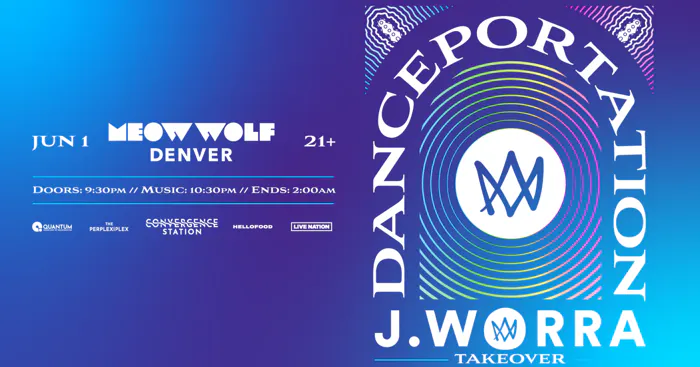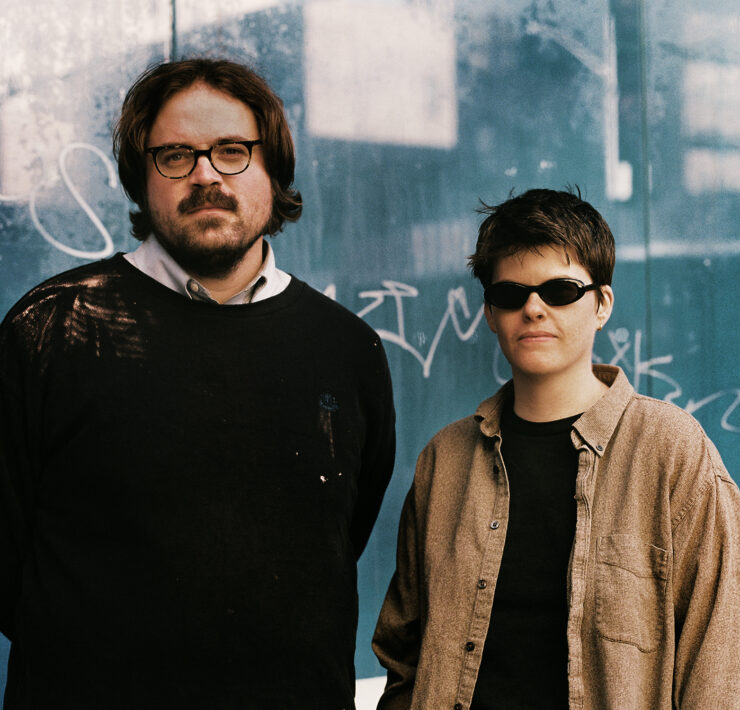Queer Pioneers Book of Love Headed to Denver

Addison Herron-Wheeler is OUT FRONT's co-publisher and editor-in-chief and friend…
Underground genres like synthpop, goth, and punk have often been breeding grounds for alternative lifestyles and queer identities. Punks experimented with gender-bending and same-gender relationships, and these same ethos and ideas carried over into the genres it inspired.
Book of Love is one of the bands that pioneered queer identity in alternative music, and they are still doing it today. Made up of a mix of genders and sexual orientations, and spawned from a love of music and art, Book of Love were a queer band before queer bands were a thing, and laid the foundation for outsider music.
“I think that the main theme is really about being an outsider, and obviously gay people feel like they are outsiders, even though lately the community has risen to some level of acceptance,” explained Ted Ottaviano, keyboardist, lyricist, vocalist, sampler, and various instrumentalist of Book of Love. “I think feeling like an outsider, an outcast from the mainstream, has always been a theme. It is reflected in all our most notable songs; there is always that message. We didn’t even have to really obviously state it; it was always embedded in the music. Our fans pretty much had the handbook they needed to understand the message.”
 This underlying message of queerness and acceptance translates over into a lot of their music, including one of their biggest hits, “Pretty Boys and Pretty Girls.” Although to them it was just another song about their lifestyle and what they were surrounded by, it ended up becoming a queer anthem for a disenchanted generation.
This underlying message of queerness and acceptance translates over into a lot of their music, including one of their biggest hits, “Pretty Boys and Pretty Girls.” Although to them it was just another song about their lifestyle and what they were surrounded by, it ended up becoming a queer anthem for a disenchanted generation.
“‘Pretty Boys and Pretty Girls’ really reflected who we were and what our lifestyles were in New York City,” he said. “The downtown scene in New York in the early 80s was a potpourri of artists, and there was a lot of sexual ambiguity, a lot of androgyny; it walked so many different lines and that became our world and our life, so we wrote about things that we were familiar with, and in a strange way it was kind of our norm, but it was probably perceived as a version of some subculture that most people hadn’t been exposed to. Now, it feels like it’s becoming more mainstream, those thoughts and ideas that we put into our early songs about ambiguity.”
Book of Love are now touring 30 years after writing that initial song about androgyny and ambiguous relationships. The song was important for them because of what three decades ago represents for the queer community. AIDS was running rampant in the circles they were part of, and queer people needed an anthem to rally to.
“It was an important song for us because it reflected an experience that so many people were having,” explained Ottaviano. The AIDS epidemic hit so many people that were a part of the scene that we were in, and we felt like we wanted to speak about it, and the story that always comes up is that the song had almost a binary message. You could listen to it and understand that dialogue that was happening, but it was also a dance song that had an upbeat message on another level.”
So upbeat, in fact, that the band was even approached to put it in a commercial. Sunkist Soda wanted to use the tune as a jingle, but even though the offer of a paycheck was tempting, Book of Love decided to decline. They were worried about cheapening the message of a song that had meant a lot to a lot of people, and didn’t want that turned into an easy commercial message.
Today, Book of Love is still making music and touring, and still expressing a lot of the same themes that they have always been known for. They don’t see it as a lack of progress, but as a way to move forward and embrace their narrative in the queer community.
“We have made some newer music, and even if the sound of it has changed, the actual main thoughts and themes that we talk about have pretty much remained the same, and I feel good about that,” Ottaviano admitted. “I almost feel like it’s more important to be about something than to be about everything. I think based on our sensibilities and the things that we are interested in, and historically groups and styles of music that have been influenced by the gay community, they remain a part of our cannon of music that we love and listen to, and what comes out is our own sound. It has almost been kind of effortless, just making things and creating things that we feel are exciting.”
Having survived a much darker time for the queer community, Book of Love have a lot of positives to say about the growth they have experienced, as well as the growth of the underground community. Gone are the days when a record label was necessary for a band to get noticed, and when it was difficult for certain people to get their hands on the music they want to hear. Although they notice a few downsides agreed upon by many older musicians—such as fewer people buying music—they overall notice positive change in the 30 years since they wrote their iconic hit.
“We remain so thankful to our gay audience because they came first, and they remained,” he explained.
Book of Love are playing Saturday, April 21 at Herman’s Hideaway in Denver.
What's Your Reaction?
Addison Herron-Wheeler is OUT FRONT's co-publisher and editor-in-chief and friend to dogs everywhere. She enjoys long walks in the darkness away from any sources of sunlight, rainy days, and painfully dry comedy. She also covers cannabis and heavy metal, and is author of Wicked Woman: Women in Metal from the 1960s to Now and Respirator, a short story collection.










